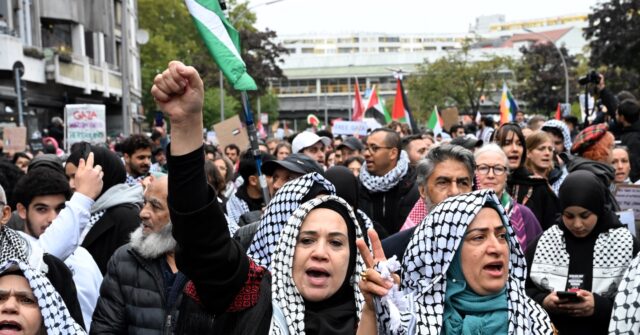On the eve of the first anniversary of the Hamas attacks on Israel, global demonstrations erupted, with crowds rallying both for Palestinians and in support of Israel. The events unfolded following large protests in major European capitals over the weekend, including London, Berlin, Paris, and Rome, drawing attention to the deepening conflict in the region. As these demonstrations are set to continue throughout the week, citizens are expressing their views on the ongoing violence and its implications, anticipating a significant turnout on Monday, which marks the somber anniversary.
In Australia, significant rallies took place in support of Palestinians, particularly in Sydney and Melbourne. Participants voiced strong objections to the perceived complicity of their government in supporting Israel amidst the ongoing violence. A protester in Sydney articulated her disbelief regarding the government’s stance, highlighting the suffering that is being witnessed globally via live streams. Meanwhile, those at the Melbourne rally expressed sorrow and solidarity for their fellow citizens, seeking to amplify the voices of those affected by the conflict. This geographical split in support illustrates the nuanced opinions on the ongoing crisis, as some Australians focused on showing support for Israelis by displaying posters of hostages still believed to be missing.
Berlin hosted its own wave of demonstrators marked by a diverse range of sentiments. Pro-Israeli demonstrators gathered near the iconic Brandenburg Gate, rallying under the banner condemning antisemitism while also demanding the return of hostages still held by Hamas. This event underscored the dual narrative—both mourning those lost in the October 7 attack and calling for the safe return of those captured during the ensuing conflict. Notably, attendees displayed posters of hostages, with specific emphasis on victims of the Hamas assaults from the prior year, emphasizing a collective call for peace and freedom.
In Paris and London, memorial events were organized by the Jewish community, reiterating the need for remembrance of the victims and prayers for those still unaccounted for. Security threats loomed large, with police in various nations preparing for potential upheaval amid the heightened tensions and concerns surrounding the protests. Fear of violence, particularly in light of previous clashes, led security forces to maintain a vigilant stance in these urban centers as dissent over the ongoing Israeli response in Gaza continued to escalate.
The situation in Italy reflected the precarious balance between demonstrations and law enforcement. Following clashes in Rome during a pro-Palestinian march, Prime Minister Giorgia Meloni condemned the violence, firmly supporting police actions taken to quell unrest. She noted that injuries to law enforcement during protests were intolerable, highlighting the chaotic atmosphere surrounding the demonstrations. Notably, the confrontations involved violent confrontations, raising concerns that increasing unrest could foreseeably impact public safety and amplify social divisions within the country.
The enduring effects of the original October 7 attack remain palpable. The assault led to extensive loss of life on both sides, with estimates indicating around 1,200 Israeli deaths and a staggering toll of over 41,000 Palestinians reported dead in Gaza, as per local health organizations. This conflict has driven home a relentless cycle of violence, with ongoing attacks from various factions complicating any potential resolutions. As the first anniversary approaches, both Pope Francis and various leaders have called for a renewed focus on peace, urging humanitarian considerations and the urgency of bringing hostages home. The echoes of the past year resonate not just within the confines of the Middle East but also within global communities reassessing their own stances in light of ongoing and escalating tensions.

